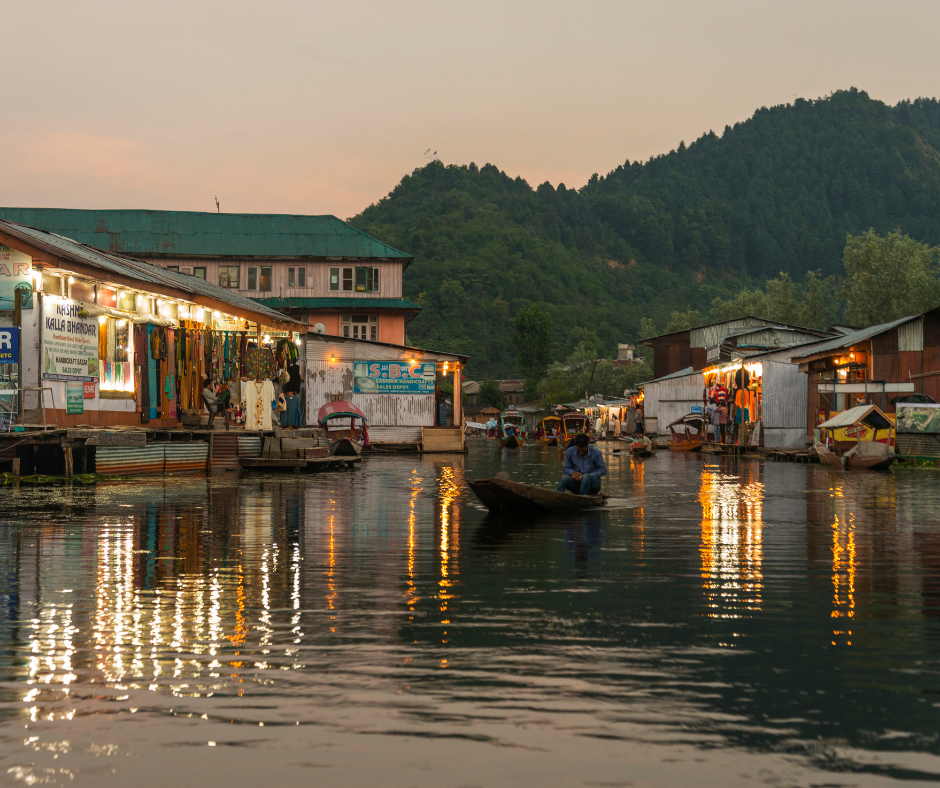
A Timeless Treasure on the Waters of Kashmir
Nestled in the heart of Srinagar, Kashmir, the Dal Lake’s Floating Vegetable Market is one of the most extraordinary, yet overlooked, cultural wonders of the world. This isn’t just a market—it’s a legacy, a lifeline, and a living breathing ecosystem that has survived centuries of change, unrest, and modernization.
As the world rapidly shifts to artificial intelligence, e-commerce, and automated logistics, this centuries-old market, entirely conducted on traditional wooden boats (shikaras), stands as a powerful symbol of sustainable living, community collaboration, and cultural identity.
And yet—we are dangerously close to losing it.
The Floating Market Is Not Just a Place—It’s a Way of Life
Every day at the break of dawn, before the city even stirs, a quiet revolution takes place on the waters of Dal Lake. Dozens of vegetable-laden boats glide silently, converging in a symphony of trade, trust, and tradition. Farmers, many of whom grow their produce on floating gardens known as ‘Raadhs’, engage in barter and sale with other boatmen.
This isn’t a tourist show. It’s real. It’s raw. It’s authentic.
This market feeds hundreds of families, sustains the delicate economy of the lake, and preserves a system of commerce that exists nowhere else in the world. It is a beacon of harmony between humans and nature, deeply intertwined with the fragile ecosystem of Dal Lake.
But here’s the painful truth: this heritage is fading.
The Urgency: Why We Must Act Now
Pollution. Tourism mismanagement. Climate change. Urban encroachment. Neglect.
These threats are not distant—they are already eroding the foundation of this living tradition. Each year, fewer young Kashmiris choose to follow in their ancestors’ footsteps. The once-bustling market is seeing fewer boats, fewer vegetables, fewer conversations.
If we continue to ignore the signs, this vibrant heritage will become nothing more than a memory. And with it, we will lose a part of our identity, our economy, and our soul.
Why the Floating Market Matters to All of Us
Sustainable agriculture.
Cultural preservation.
Eco-tourism with purpose.
Community-based trade.
The Dal Lake Floating Market isn’t just a local concern—it’s a global inspiration. It is one of the few living examples of sustainable, zero-carbon commerce. The boats don’t emit CO2. The vegetables are organic. The lifestyle is rooted in self-reliance, humility, and harmony.
This market teaches the world that development doesn’t have to mean destruction. That technology must coexist with tradition. That profit must not come at the cost of preservation.
What Must Be Done: A Call to Action
This is not a passive read. This is a rallying cry.
If you are a policymaker, introduce protective legislation for the lake, regulate waste disposal, and create micro-grants for floating farmers.
If you are a traveler, visit responsibly—support the boatmen, buy from the market, learn their stories.
If you are a Kashmiri youth, know this: your heritage is not a burden, it is a badge of honor. Protect it.
If you are a citizen of the world, share this story. The world needs to know that Kashmir is not just about conflict—it is about culture, creativity, and resilience.
Final Words: Do Not Let This Legacy Disappear
If we do nothing, this will be gone within a generation.
But if we act—if we care, protect, share, and support—this floating miracle can continue to thrive, inspire, and lead.
The world is full of artificial marvels. But the Dal Lake floating vegetable market is one of the last natural ones. Protect it. Promote it. Preserve it.
Now. Not tomorrow.
